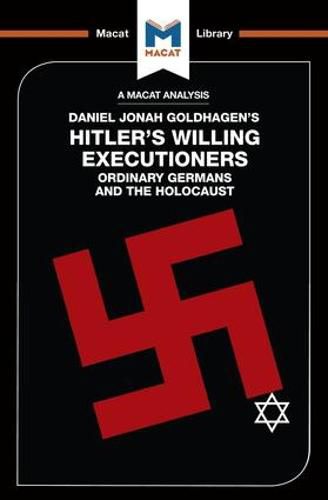Readings Newsletter
Become a Readings Member to make your shopping experience even easier.
Sign in or sign up for free!
You’re not far away from qualifying for FREE standard shipping within Australia
You’ve qualified for FREE standard shipping within Australia
The cart is loading…






Daniel Goldhagen’s study of the Holocaust offers conclusions that run directly counter to those reached by Christopher Browning, whose book Ordinary Men is also the subject of a Macat analysis. As such, the two analyses make possible some interesting critical thinking exercises focused on evaluation of the evidence used by the two historians. For Goldhagen, a chief reason for German actions was not the mundane good comradeship stressed by Browning, but a longstanding hatred of Jews and Judaism specific to Germany that dated back well into the previous century. Debating which historian is right, which has made better use of the available evidence, which has most successfully written objectively - and which advances the most secure interpretation of contested documents - forces students to think critically about one of the most important and (on the surface at least) incomprehensible events of the past century.
$9.00 standard shipping within Australia
FREE standard shipping within Australia for orders over $100.00
Express & International shipping calculated at checkout
Daniel Goldhagen’s study of the Holocaust offers conclusions that run directly counter to those reached by Christopher Browning, whose book Ordinary Men is also the subject of a Macat analysis. As such, the two analyses make possible some interesting critical thinking exercises focused on evaluation of the evidence used by the two historians. For Goldhagen, a chief reason for German actions was not the mundane good comradeship stressed by Browning, but a longstanding hatred of Jews and Judaism specific to Germany that dated back well into the previous century. Debating which historian is right, which has made better use of the available evidence, which has most successfully written objectively - and which advances the most secure interpretation of contested documents - forces students to think critically about one of the most important and (on the surface at least) incomprehensible events of the past century.